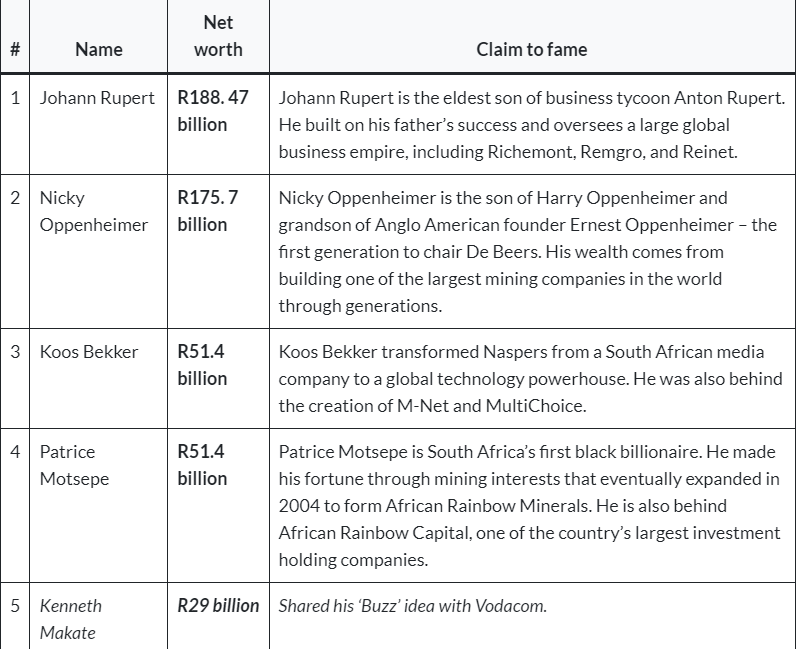BUSINESS NEWS - Kenneth Makate is set to become South Africa’s 5th richest person. He is currently in about 20 millionth place (if we were to rank individual South Africans from richest to poorest).
This may seem improbable – how can someone go from 20 million in the rich list to number 5? Well, it turns out Makate was the originator of the ‘Please call me’ idea.
For the non-South Africans reading this – a ‘Please Call Me’ was a free missed-call service that came out back in 2001. If you didn’t have enough airtime to make a call or send a message on your phone, Vodacom (a provider) allowed you to send a ‘Please call me’ text to a friend, so that they knew you wanted to chat.
It’s quite brilliant.
And this week, South Africa’s Supreme Court of Appeal ordered Vodacom to pay Kenneth a minimum of R29 billion (court documents show the actual amount should be somewhere between R29 billion and R55 billion).
Following the success of the ‘Please Call Me’ service in 2001, Kenneth launched a lengthy legal court battle against Vodacom seeking compensation for his idea.
His case was initially successful, with the Court ordering Vodacom to fairly compensate Kenneth for his idea. They began with an offer of R10 million. This offer was rejected, and subsequently followed with an offer of R47 million. Again, this was rejected.
On what basis were these offers rejected?
Based on certain assumptions about the number of Please Call Me messages sent over 18 years, their success rate, the average call duration, and the average call revenue, it was estimated that Vodacom generated approximately R200 billion from the service.
If one were to assume a 10% fee, the result comes to R20 billion. This is what Kenneth requested and, seemingly, the court now agrees with.
What’s not in dispute is Kenneths role in creating the service. All parties agree that he shared the idea with his superior at Vodacom in 2001. What all parties also agree on is that he did not play a role in patenting, developing, or executing it. It was simply an idea.
While the court order may seem unreasonable, it made me think of consulting companies like Bain and McKinsey who charge on a similar basis – a % of the value they create.
You may remember the scandal involving McKinsey and Eskom during the Sate Capture Saga back in 2021 – Eskom admitted to paying the consulting firm a R1.6 billion fee. McKinsey was ordered to repay the fee.
But the fee agreement between Eskom and McKinsey was that they would be paid 10% of what they saved Eskom. And the saving for the work they did amounted to R16 billion.
McKinsey responded to the scandal as follows “The fees we charged at Eskom are in line with similar projects we, and other firms, undertake in South Africa and elsewhere around the world. We are proud of our work at Eskom and stand fully behind the impact and value we delivered”.
So, the commission model is standard.
Of course, McKinsey would have been paid R0 if they couldn’t add any value. They also did the work. Kenneth, on the other hand, was an employee, and getting paid a salary. He had the idea, and the Vodacom workforce executed it.
Not quite the same thing, but it does make one think.
In any case, the Vodacom shareprice has dropped 12% this year, likely influenced by this court case. The market cap decreased about R27 billion (coincidence?).

I won’t pass judgement on this case. It’s not my place. Rather, I’ll leave you with a table showing the 5 richest people in South Africa should Kenneth get his paycheck.

Source: BusinessTech / Forbes Africa’s Richest Billionaires
Have a great weekend and let’s all be happy for Kenneth.
‘We bring you the latest Garden Route, Hessequa, Karoo news’

















